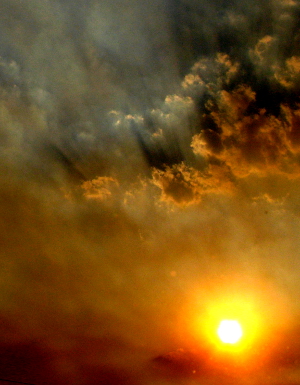Fire raises dementia risk

A study of over 1.2 million Californians has found that small increases in wildfire-related fine particulate matter (PM2.5) exposure raised dementia risk by 18 per cent.
Nonwildfire PM2.5 exposure of the same level increased dementia risk by just 1 per cent.
The research highlights health risks from bushfires, which are expected to intensify with climate change.
“As climate change intensifies, interventions that reduce wildfire PM2.5 exposure can potentially reduce the risk of dementia and support health equity,” the study’s authors wrote.
The analysis covered health data from Kaiser Permanente Southern California members aged 60 and above from 2008 to 2019.
Researchers calculated three-year rolling averages for wildfire and nonwildfire PM2.5 exposure.
Adjustments were made for factors such as age, ethnicity, and socioeconomic status.
Stronger effects were seen in groups such as those under 75 at the study’s start, racially minoritised communities, and residents of high-poverty areas.
Fine particles in wildfire smoke penetrate the lungs and bloodstream, potentially triggering oxidative stress, blood-brain barrier disruptions, and cerebrovascular dysfunction - factors tied to neurodegeneration and dementia.
Researchers say their findings show a need for swift action to limit smoke exposure and protect at-risk communities as wildfires become more frequent and severe.
The full study is accessible here.







 Print
Print


